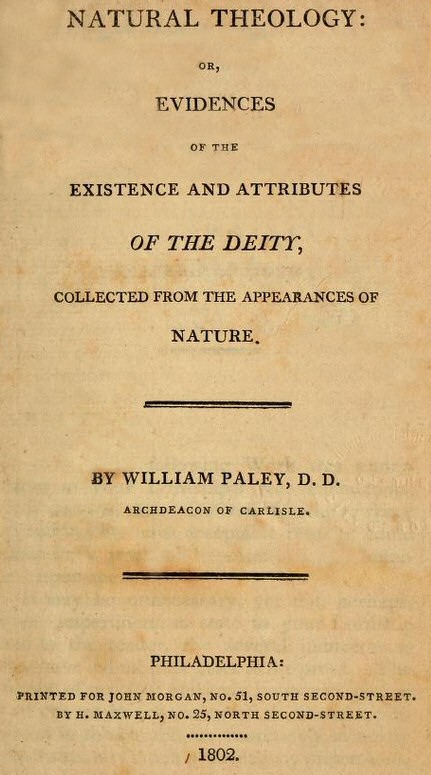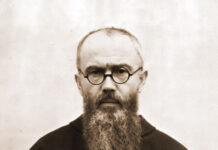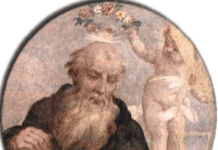
Natural theology is an attempt to prove, by the use of reason alone, that the claims of revealed religion are plausible. One of the great teachers of natural theology was the 13th Century Catholic theologian Thomas Aquinas. He offered, without reference to scripture, five famous proofs for the existence of God in his book Summa Theologica (cf., I, q.2, a.3). Another classic approach is by the philosopher William Paley in his book Natural Theology (1802). The claims of natural theology usually focus on the existence of God and His attributes. Let us look, for one example, at the teleological proof for the existence of God.
The word teleology comes from the Greek word telos, which means end or purpose. If a thing has a purpose, it would appear to be designed for that purpose or end. This implies the existence of one who designs the end or purpose. Though the argument was originally introduced by Aquinas as the fifth of his five proofs, William Paley gives us what has become the classic instance of the argument as follows:
In crossing a heath, suppose I pitched my foot against a stone, and were asked how the stone came to be there; I might possibly answer that, for anything I knew to the contrary, it had lain there forever: nor would it perhaps be very easy to show the absurdity of this answer. But suppose I had found a watch upon the ground, and it should be inquired how the watch happened to be in that place; I should hardly think of the answer I had before given, that for anything I knew, the watch might have always been there…. There must have existed, at some time, and at some place or other, an artificer or artificers, who formed [the watch] for the purpose which we find it actually to answer; who comprehended its construction, and designed its use…. Every indication of contrivance, every manifestation of design which existed in the watch, exists in the works of nature; with the difference, on the side of nature, of being greater or more, and that in a degree which exceeds all computation.
Paley is saying here, as a natural theologian, what the great physicist Isaac Newton had said before him: “This most beautiful [solar] system could only proceed from the dominion of an intelligent and powerful Being,” and what Charles Darwin would say after him about his theory of evolution: “There is grandeur in this view of life, with its several powers, having been originally breathed by the Creator into a few forms or into one ….” Even Albert Einstein, who denied he was an atheist, was a teleologist in the following remarks: “I want to know how God created this world. I am not interested in this or that phenomenon, in the spectrum of this or that element. I want to know His thoughts, the rest are details.” It is interesting to note that Einstein asks how, but not why, God created this world. That, of course, would have been for him too theological and unscientific a question to ask because it would require going deeper into God’s thoughts than Einstein would be willing to go.
What can be said of the teleological proof is that it suggests a designing God. It does not tell us whether God is good or evil; nor whether God is concerned about, or indifferent to, our fate. For reliable answers to such questions we must reason that God wants us to know more about Him by giving us a Bible full of revelations. But the teleological argument, like all the other proofs for the existence of God, raises also the question of whether the human mind can grasp how its own existence could come together by a series of unplanned accidents or pure luck, as some would say the theory of evolution argues. Are there not too many fortunate coincidences for us to believe that nature produced us purely by accident and without the slightest hint of a guiding hand? As astrophysicist (and atheist) Fred Hoyle noted, “The chances that life just occurred [without being designed] are about as unlikely as a typhoon blowing through a junkyard and constructing a Boeing-747.”
The teleological argument makes plausible the existence of God. But this argument only appeals to the head, for if one’s heart is dead set against the idea of a creative intelligence behind the universe, the argument may be interpreted to rise above the level of possible but not to the level of plausible.
No, for a more convincing proof we have to encounter Christ up close and personal. It is then and there that the mind and the heart together will find a way to embrace God with the greatest possible conviction. Natural theology supports, but does not oblige, anyone to believe anything which otherwise may be verified by revelation and the authentic yearnings of the human heart joined with the deepest insights of the human mind.
Mens et cor simul coniuncta!











